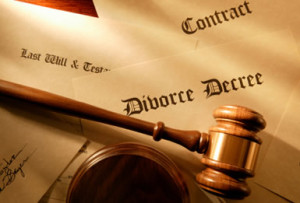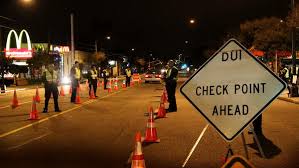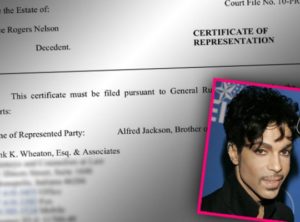 One of the most important pieces of a divorce involving minor children is the creation of a Permanent Parenting Plan. Not only is it required to finalize a divorce, but the plan must be in the best interests of the minor child(ren).
One of the most important pieces of a divorce involving minor children is the creation of a Permanent Parenting Plan. Not only is it required to finalize a divorce, but the plan must be in the best interests of the minor child(ren).
Divorcing parties can collaborate to develop a Permanent Parenting Plan (PPP). Or, if the parties do not agree, the PPP may be ordered by the Judge presiding over the divorce. Generally, as with other issues in a divorce, it is best that the parties develop their own parenting plan by agreement – rather leaving such a deeply personal family matter to a Judge who only gets a snapshot of your life and your case. For purposes of this post, we will discuss an agreed PPP.
So, what is a PPP? A PPP is ultimately the rule book that the parties will follow regarding raising their children post-divorce. It covers parenting time, child(ren) exchange time and place, who pays health insurance for the child(ren), who pays for day care, who makes religious and or health decisions for the child(ren), child support, and more until the child(ren) reach the age of majority. Some parents address college expenses, the purchase of a vehicle for the child(ren), payment for extra curricular activities, travel and more as part of their PPP. Without a clear and concise PPP establishing the rights, duties and obligations of the parents, disputes, confusion, problems and even a post-divorce law suit are sure to follow.
Generally, a PPP addresses all aspects dealing with the minor child(ren) of a marriage. Thus, a PPP is a very important part of the divorce process and should be taken very seriously during the negotiations process. An experienced family law attorney can assist you by protecting your rights and crafting a PPP that will be in the best interest of your minor child(ren) and will help you and your spouse co-parent effectively and without conflict.
Child support is one of the key elements in a PPP. Clients want to know who will pay child support and how much the monthly obligation will be. In a Tennessee, the number is not just “made up” or “ball parked”. In fact, child support is determined by a formula through the Tennessee Child Support Guidelines. To determine child support the following items are needed: 1) proof of income from each parent; 2) a proposed parenting schedule which determines the number of days per year each parent will have with the child(ren); 3) Proof of any potential support obligation off set such as an existing support obligation for other children outside of this marriage; 4) Proof of any special needs and or medical care for the child(ren) of the marriage; 5) Proof of work-related child care costs; 6) Proof of health insurance costs; and 7) other related documents or expenses. This information is incorporated into the Child Support Calculator and the presumptive child support obligation is determined.
The creation of a PPP that works for your family is not only essential to achieve a divorce, it is also essential for successful co-parenting. And, just because the parents want to do X or Y doesn’t mean the Court will approve it. Your attorney can walk through your goals and options with you to help you know if your goals will comply with Tennessee law and even what your Judge will agree to as part of the divorce. For example, some Courts will agree to a true 50/50 parenting plan and some will not agree to it unless the parents have already been following a 50/50 plan for a significant amount of time without issue.
The Golden Rule is that the plan must be in the best interests of the child and not just what Mom or Dad wants or thinks should happen. In considering what to put into your parenting plan, put your child(ren) and their emotional an physical well being first and put current divorce conflicts with your spouse to the side. Remember, the PPP is about your child(ren) and what is best for them and not trying to “score” one against your spouse or trying to use the child(ren) to hurt or punish your spouse.
The PPP will also be incorporated into your Final Decree of Divorce. This means the Plan is not a “suggestion”. It means it is court Order and will be the controlling document regarding parenting time and obligations until the child(ren) graduate high school *and* have reached at least age 18 years of age.
Have questions about creating or modifying your PPP? Please call us today at 615-200-7239.

 ion is a civil action but it can have criminal repercussions if violated. Orders of Protection can be issued between those persons who have lived together, had sex, are related, had dated or other such close relationship. Orders of Protection can be issued when there is a real or immediate threat of harm to the complainant’s person or property.
ion is a civil action but it can have criminal repercussions if violated. Orders of Protection can be issued between those persons who have lived together, had sex, are related, had dated or other such close relationship. Orders of Protection can be issued when there is a real or immediate threat of harm to the complainant’s person or property.
 Harold E. Rushton, Esq. is a Nashville, Tennessee based Divorce, Separation and Criminal Defense Attorney serving Davidson, Williamson, Rutherford, Dickson and Wilson Counties. Call The Rushton Law Firm, PLLC Phone: (615)576-0071 or (615)815-9967
Harold E. Rushton, Esq. is a Nashville, Tennessee based Divorce, Separation and Criminal Defense Attorney serving Davidson, Williamson, Rutherford, Dickson and Wilson Counties. Call The Rushton Law Firm, PLLC Phone: (615)576-0071 or (615)815-9967 We frequently receive questions from people that are either in the process of divorce or are soon to begin a divorce. We have decided to share some of those questions and answers here for those of you that may benefit from this information.
We frequently receive questions from people that are either in the process of divorce or are soon to begin a divorce. We have decided to share some of those questions and answers here for those of you that may benefit from this information. If you are contemplating a divorce in Tennessee or already in the process, the road may be a rough one appearing to be filled with perilous pitfalls. Every divorce situation is different and many are quickly and amicably resolved. These are typically referred to as “uncontested divorces.” Sometimes things work out well and everyone leaves the marriage satisfied that they have worked things out amicably. However, some divorces are riddled with animosity, feuding and strife from day one. This is something that is very difficult to predict because of the nature of divorce. Many times an “uncontested” divorce quickly becomes contested and the parties find themselves in a living nightmare!
If you are contemplating a divorce in Tennessee or already in the process, the road may be a rough one appearing to be filled with perilous pitfalls. Every divorce situation is different and many are quickly and amicably resolved. These are typically referred to as “uncontested divorces.” Sometimes things work out well and everyone leaves the marriage satisfied that they have worked things out amicably. However, some divorces are riddled with animosity, feuding and strife from day one. This is something that is very difficult to predict because of the nature of divorce. Many times an “uncontested” divorce quickly becomes contested and the parties find themselves in a living nightmare! Being arrested and charged with DUI can be a very serious situation for you and your family. That is why you should seriously consider hiring an attorney to represent you if you are accused of DUI. Your interests are at stake when you go up against the State in a DUI or criminal case. Your freedom may also be in jeopardy. This is an important time to seek help.
Being arrested and charged with DUI can be a very serious situation for you and your family. That is why you should seriously consider hiring an attorney to represent you if you are accused of DUI. Your interests are at stake when you go up against the State in a DUI or criminal case. Your freedom may also be in jeopardy. This is an important time to seek help. Many times good people find themselves in a bad situation. Over the course of my career I have witnessed this happen many times. Good, hard working people who found themselves running afoul of the law by just one or two drinks too many.
Many times good people find themselves in a bad situation. Over the course of my career I have witnessed this happen many times. Good, hard working people who found themselves running afoul of the law by just one or two drinks too many. Earlier this year, we posted about the passing of Prince. He died without having executed a will devising his ‘Diamonds and Pearls’ or making other fundamental estate planning decisions.
Earlier this year, we posted about the passing of Prince. He died without having executed a will devising his ‘Diamonds and Pearls’ or making other fundamental estate planning decisions. lly inferred) from the Constitution and are part of the fundamental rights we enjoy as citizens. Our culture and current political environment have produced the expansion of these judicially inferred rights in recent years, with likely more to come. It is ironic that as judicially created personal privacy rights expand, some seek to limit an actual black and white Constitutional right – the Second Amendment.
lly inferred) from the Constitution and are part of the fundamental rights we enjoy as citizens. Our culture and current political environment have produced the expansion of these judicially inferred rights in recent years, with likely more to come. It is ironic that as judicially created personal privacy rights expand, some seek to limit an actual black and white Constitutional right – the Second Amendment.